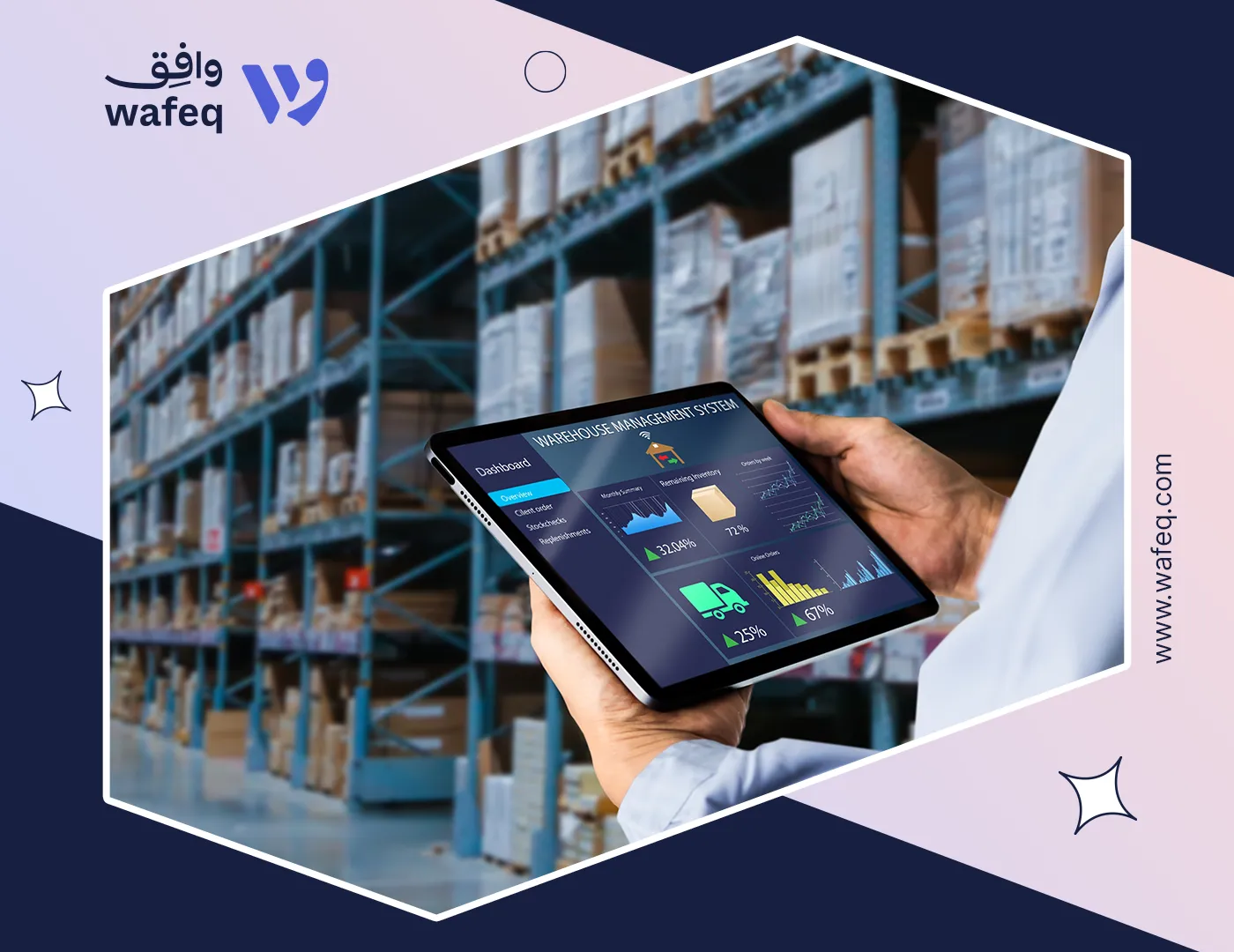Best Accounting Software Trusted by ZATCA and Compliant for Phase 2 E-Invoicing

Over 90% of businesses in Saudi Arabia will soon be required to fully comply with ZATCA’s Phase 2 e-invoicing regulations—a mandate that leaves no room for error. For CFOs, finance managers, and accounting teams, ensuring compliance is more than a legal obligation but a strategic necessity to maintain operational efficiency and avoid costly penalties. Selecting the right accounting software is the cornerstone of achieving this objective, providing automated compliance, audit-ready records, and seamless integration across financial operations.
This article reviews the leading accounting software solutions trusted by ZATCA, highlights the essential features for Phase 2 e-invoicing compliance, and offers practical guidance for finance professionals to make informed decisions.
Why ZATCA Compliance Matters
Compliance with ZATCA regulations is critical for all businesses operating in Saudi Arabia. Phase 2 e-invoicing introduces advanced obligations, including structured electronic invoices, real-time reporting, and integration with government systems. Non-compliance can result in substantial fines, operational disruptions, and increased audit scrutiny. Beyond legal compliance, adhering to these regulations improves data accuracy, strengthens financial controls, and enhances transparency, enabling finance teams to make informed strategic decisions.
Phase 2 E-Invoicing Key Requirements and Implications for Businesses
Phase 2 e-invoicing in Saudi Arabia represents a significant advancement in the digital transformation of tax compliance. Unlike Phase 1, which focused primarily on generating and archiving electronic invoices, Phase 2 introduces structured electronic invoices (FATOORAH format), real-time integration with ZATCA systems, and enhanced reporting obligations.
Phase 2 of ZATCA’s e-invoicing mandate, effective from January 1, 2023, introduces critical requirements to enhance tax compliance and data integrity:
- Real-Time Integration with ZATCA Businesses must integrate their invoicing systems with ZATCA's FATOORAH platform via API. This integration enables real-time validation and clearance of invoices, ensuring immediate compliance and reducing manual errors.
- Structured Invoice Formats Invoices must be generated in structured formats such as XML or PDF/A-3 with embedded XML. This structure facilitates automated processing and ensures consistency across transactions.
- Digital Authentication and Cryptographic Stamps Each invoice must include a cryptographic stamp (CSID) issued by ZATCA and a QR code containing nine mandatory tags in TLV base64 format. These elements authenticate the invoice's origin and integrity, preventing tampering and fraud.
- Mandatory Reporting Timelines Simplified Tax Invoices (B2C) must be reported to ZATCA within 24 hours of issuance. This requirement ensures timely data submission and enhances transparency.
- Data Retention and Archiving Businesses are required to securely store electronic invoices and related documents for a minimum of six years. This practice supports audit readiness and ensures compliance with legal retention periods.
Businesses must ensure their accounting software can generate compliant invoices, validate them in real time, and maintain secure, auditable records. Implementing Phase 2 e-invoicing ensures regulatory adherence and improves operational efficiency, data accuracy, and transparency across financial processes.
Features to Look for in ZATCA-Compliant Accounting Software
Selecting the right accounting software is critical for businesses aiming to comply with ZATCA Phase 2 e-invoicing requirements. Finance professionals should prioritize solutions that offer the following features:
- Automated Phase 2 E-Invoicing The software should automatically generate structured invoices, integrate with ZATCA’s FATOORAH platform, and apply cryptographic stamps and QR codes without manual intervention.
- Real-Time Validation and Reporting Ensure the system can validate real-time invoices, flag errors, and generate reports aligned with ZATCA’s compliance timelines.
- Secure Data Storage and Audit Trails Compliant software must maintain encrypted records of all invoices for the required retention period and provide complete audit trails for inspection.
- Multi-User Access and Approval Workflows Robust workflow management allows multiple users to collaborate securely, approve invoices, and control financial operations.
- Bilingual Support and Local Currency Software should support Arabic and English interfaces, with full compatibility for Saudi Riyal transactions, ensuring usability for local finance teams. Know more about: Why Multi-Currency and Multi-Language Accounting Drives GCC Growth
- Integration with ERP and Financial Systems Seamless integration with existing accounting, ERP, or payroll systems reduces manual data entry, improves accuracy, and accelerates reporting.
- Analytics and Dashboard Insights Advanced reporting dashboards allow finance teams to monitor compliance status, invoice volumes, and payment trends efficiently.
Leading Solutions for Phase 2 E-Invoicing Compliance
Several accounting software solutions in Saudi Arabia are certified or recognized by ZATCA for Phase 2 e-invoicing compliance. Choosing a trusted solution ensures seamless integration with government systems, accurate invoicing, and secure reporting. Key options include:
1. Wafeq Wafeq is a ZATCA-approved accounting and tax software designed to simplify compliance with Saudi Arabia's e-invoicing regulations.
Key Features:
- Full Compliance with ZATCA Phase 2: Wafeq ensures that all invoices are generated in XML and PDF/A-3 formats, meeting ZATCA's structured data requirements
- Seamless ERP Integration: The software offers a modern, easy-to-use REST API, allowing seamless integration with any ERP system to automate invoice generation and submission
- Scalability: Wafeq is designed to handle millions of invoices, making it suitable for businesses of all sizes
- Email Delivery: Invoices can be sent directly to customers via email with PDF attachments, streamlining the invoicing process
- User-Friendly Interface: Wafeq's intuitive interface ensures ease of use, reducing the learning curve for finance teams.
2. SAP SAP is a comprehensive travel and expense management solution that integrates with SAP's broader ERP offerings.
Key Features:
- Integration with ZATCA: SAP provides features that support integration with ZATCA's e-invoicing requirements, facilitating automated compliance.
- Centralized Document Management: The platform centralizes and eases the integration of SAP solutions with tax authorities and business partners around the world.
- Global Compliance: While primarily focused on travel and expense management, SAP's integration capabilities support compliance with global tax regulations, including Saudi Arabia's e-invoicing requirements.
3. Oracle NetSuite Oracle NetSuite is a cloud-based ERP solution offering comprehensive financial management capabilities.
Key Features:
- Direct Integration with ZATCA: NetSuite provides seamless integration with ZATCA, enabling organizations to process electronic invoicing directly and securely from their NetSuite account.
- UBL Extensions Support: The solution can generate UBL extensions with required values like SignatureValue and X509Certificate, ensuring compliance with ZATCA Phase 2 standards.
- Automated Invoice Generation: NetSuite automates invoice creation, ensuring each invoice complies with ZATCA standards.
- Real-Time Reporting: The platform offers real-time financial insights and reporting, aiding compliance monitoring and decision-making.
4. TallyPrime TallyPrime is an accounting software solution designed for small and medium-sized enterprises.
Key Features:
- ZATCA Compliance: TallyPrime fully complies with Saudi Arabia's ZATCA e-invoicing requirements, including QR code generation, proper tax calculations, and all necessary data fields.
- Offline Invoice Generation: The software allows businesses to generate e-invoices offline, ensuring continuity even without internet connectivity.
- Bilingual Support: TallyPrime supports Arabic and English, catering to the local business environment.
- User-Friendly Interface: The intuitive interface simplifies the invoicing process, reducing the need for extensive training.
How Wafeq Helps Businesses with Phase 2 Compliance
Wafeq provides a comprehensive solution to ensure businesses in Saudi Arabia can seamlessly comply with ZATCA Phase 2 e-invoicing requirements. Its advanced features simplify the full invoicing lifecycle, reduce errors, and save valuable time for finance teams.
Key Benefits:
- Automated Invoice Generation Wafeq automatically generates structured invoices in XML and PDF/A-3 formats with embedded cryptographic stamps and QR codes, eliminating manual errors.
- Real-Time Validation and Submission Invoices are validated in real time against ZATCA’s FATOORAH platform, ensuring instant compliance and reducing the risk of rejection or audit issues.
- Secure Archiving and Audit Trails All invoices are securely stored and fully auditable for up to six years, fulfilling ZATCA’s legal retention requirements and ensuring audit readiness.
- Bilingual Interface and Local Currency Support Finance teams can work efficiently in Arabic and English, with full support for Saudi Riyal transactions, enhancing usability and accuracy.
- Integration with ERP and Accounting Systems Wafeq integrates seamlessly with existing ERP and accounting platforms, automating invoice creation, reducing duplicate entries, and improving financial accuracy.
- Advanced Compliance Dashboards The system provides real-time insights into invoice volumes, compliance status, and pending approvals, allowing finance managers to monitor operations and make informed decisions.
Read Also: A detailed and in-depth guide on setting up the e-invoicing module in Wafeq for Saudi companies
Choosing the right accounting software is critical for ZATCA Phase 2 e-invoicing compliance. Solutions like Wafeq automate invoice generation and validation and provide real-time insights, secure archiving, and seamless ERP integration. With a trusted, compliant system, businesses reduce errors, save time, and effortlessly ensure audit readiness.
FAQs About ZATCA-Compliant Accounting Software
What makes accounting software ZATCA-compliant for Phase 2 e-invoicing?
ZATCA-compliant software must generate invoices in structured formats (XML and PDF/A-3), embed cryptographic stamps (CSID), include a QR code with required TLV fields, validate invoices in real time against the FATOORAH platform, and securely store all invoices for at least six years. Advanced solutions also integrate seamlessly with ERP systems to automate invoice workflows.
Can I use any ERP system with ZATCA Phase 2 e-invoicing?
A2: Only ERP systems that allow structured data export and API integration with ZATCA are suitable. Wafeq, Oracle NetSuite, SAP Concur, and TallyPrime provide certified integrations to ensure seamless submission, validation, and reporting, reducing manual errors and audit risks.
What are the risks of using non-compliant software?
Non-compliant software can result in rejected invoices, penalties, audit complications, and reputational risks. Businesses may also face operational inefficiencies due to manual corrections and additional reporting requirements. Using certified software like Wafeq mitigates these risks.
How can companies ensure secure archiving of e-invoices?
ZATCA requires e-invoices to be stored securely for at least six years. Advanced solutions provide encrypted storage, audit trails, and controlled user access to ensure data integrity, traceability, and compliance during audits.
Is bilingual support necessary for Saudi businesses?
Yes. Many companies operate in Arabic and English. Software with dual-language interfaces, like Wafeq and TallyPrime, ensures accurate reporting, minimizes user errors, and enhances adoption across multi-lingual finance teams.
How does Phase 2 affect B2C vs. B2B invoicing?
B2C invoices must be reported to ZATCA within 24 hours of issuance, while B2B invoices require structured formats with cryptographic validation. Using compliant software automates these distinctions, reducing delays and ensuring adherence to regulatory timelines.
Have you received a notification from ZATCA regarding the second phase of e-invoicing for your business? Contact us to help you set up your account.
Have you received a notification from ZATCA regarding the second phase of e-invoicing for your business? Contact us to help you set up your account.


.png?alt=media)









